Studying at the University of Vienna - A Matter of (No) Women?
For 532 years, only men were allowed to study at the University of Vienna. 1897 the first three female students were admitted to the Faculty of Philosophy, and the first doctorate of a woman acknowledged in Austria: Gabriele Possanner von Ehrenthal had received her medical diploma in Switzerland three years earlier.
125 years later, we look back on an impressive success story of women who study. For the first time (since the war years), as many women as men studied at the University of Vienna in 1980/81. Since 2000, the share of women among students is consistently over 60%. Women not only study more often but also more successfully than men: Since 2004, two out of three degrees per study year are achieved by women.
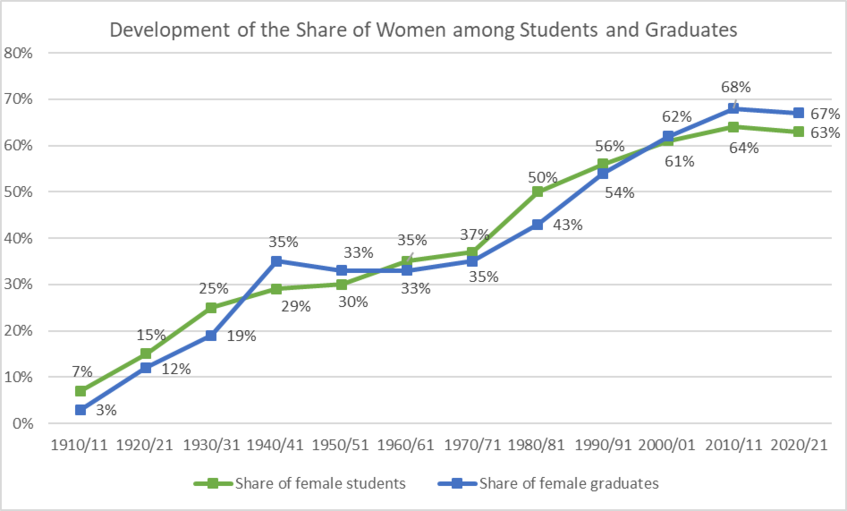
Sources: Universitätsarchiv Universität Wien; Statistik Austria, Hochschulstatistik; Datawarehouse Hochschulbereich unidata.gv.at; with thanks to Ulrike Denk (Universitätsarchiv) and Herbert Posch (Institut für Zeitgeschichte)
The great diversity of disciplines at the University of Vienna also comes with many differences in the access to study. Women prefer the Humanities and Social Sciences, men are overrepresented in the Formal and Natural Sciences. In the increasingly more important Life Sciences, there are just as many female students as in the Humanities, but the chances for a career in academia are far from as good.
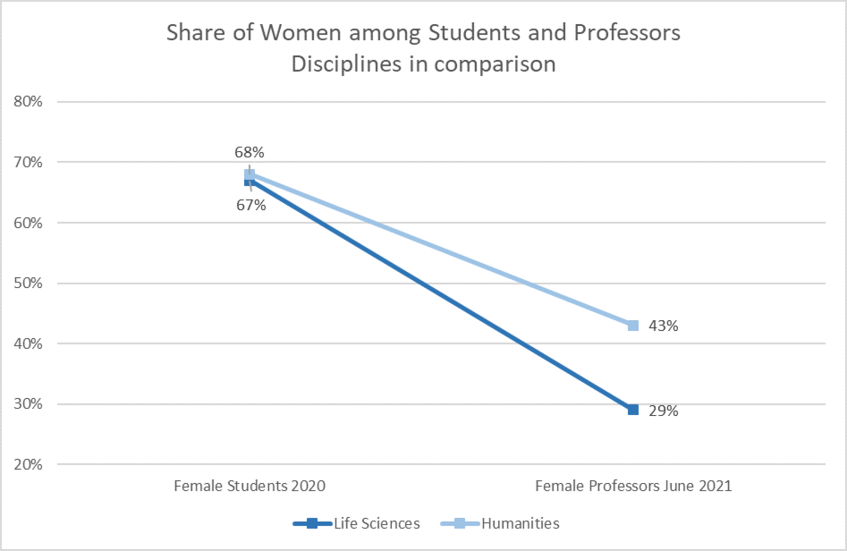
Sources: Abteilung EDV-Koordination und Controlling and DLE Studienservice und Lehrwesen, Universität Wien
As much as women are on top when it comes to studying: male students catch up when it comes to careers in academia. Since the millennium, there are about as many female as male doctoral graduates. That means that significantly more men decide to pursue a doctorate after graduating the Masters programme.
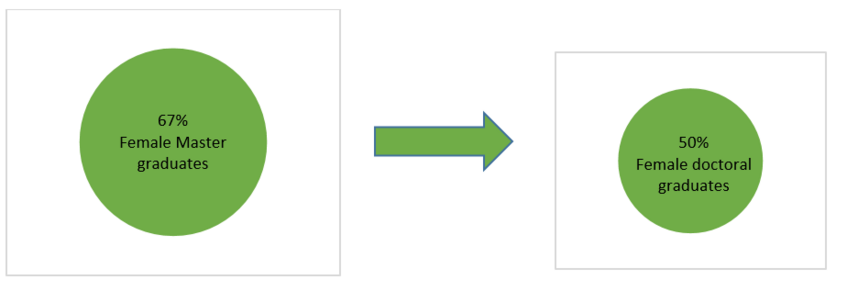
Source: DLE Studienservice und Lehrwesen, Universität Wien
Choice of discipline plays a role here, too: There are more female graduates in the Humanities and (significantly) more male graduates in the Formal and Natural Sciences.
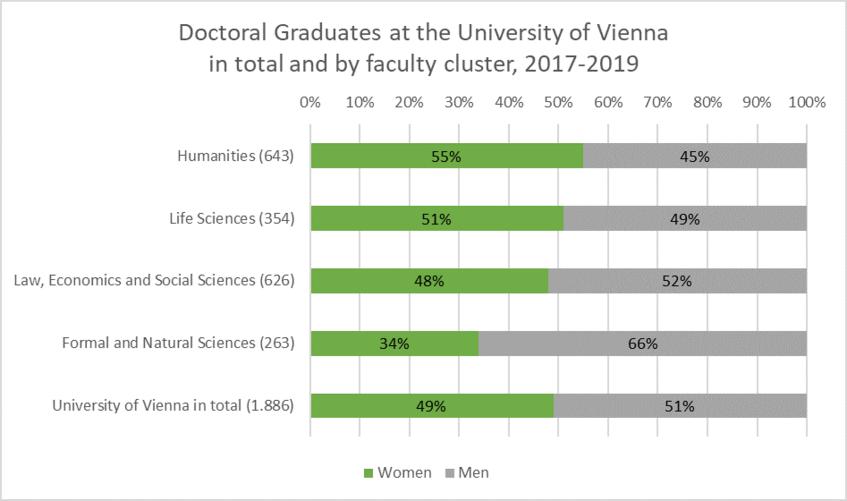
Source: DLE Studienservice und Lehrwesen, Universität Wien
Women successfully fought their way into the university. The new women's movement of the 1970ies together with the open access to universities and policies to support societal participation of all groups were a decisive influence for this. But participation still isn't possible for everyone: Children from families with a lower educational level are still strongly underrepresented at university, just like children from families with migration experience.
The first of the following diagrams shows: Coming from a family with higher educational level increases the likelihood of a child to study by a factor of 2.5.
The second of the following diagrams shows: Migration experience reduces the likelihood of a child to study by more than 50%.
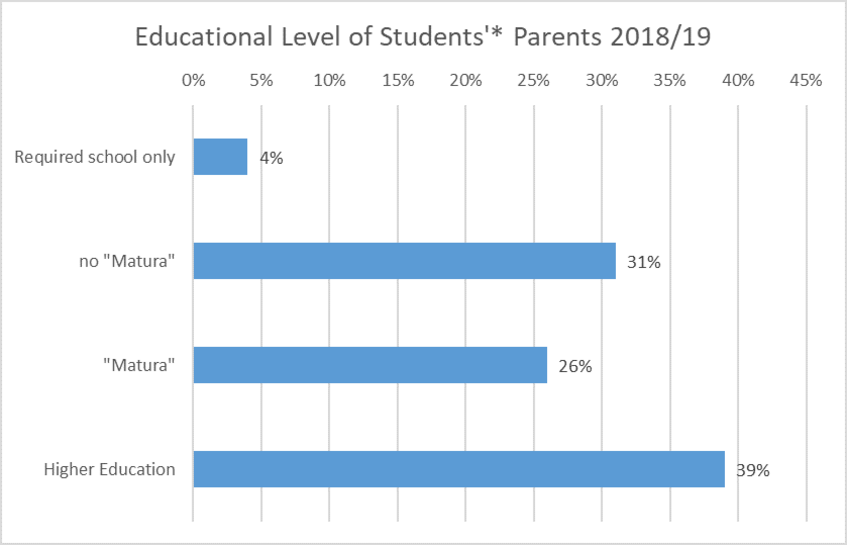
*Students educated in Austria only
Source: Studierenden-Sozialerhebung 2019, Institut für Höhere Studien, Wien
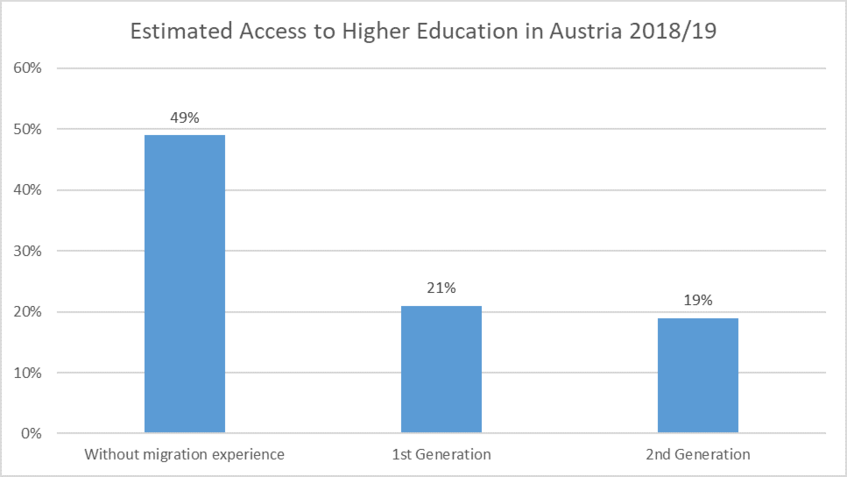
Source: Studierenden-Sozialerhebung 2019, Institut für Höhere Studien, Wien
